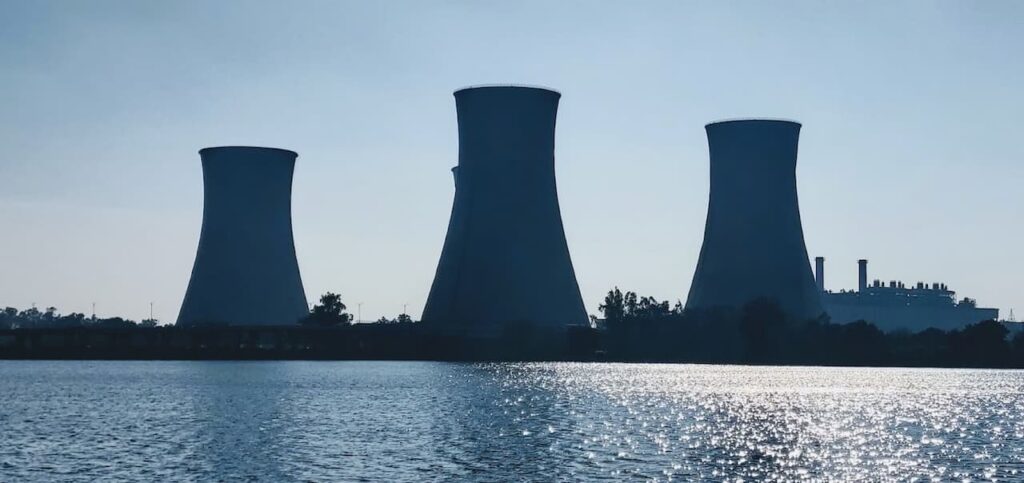Since the middle of the 20th century, nuclear technologies have contributed to key areas of human life. And it’s not just nuclear power. Non-energy applications of nuclear technologies are spreading more and more, and the pace of their implementation is higher than in the energy sector. For example, physicians and technicians working in atomic medicine perform billions of procedures yearly. The volume of food processed with ionizing radiation reaches a billion tons annually and continues to grow. In addition, nuclear technologies are increasingly used in crop breeding and pest control, water management, mineral exploration, public safety, and many other areas.
Nuclear power has recently become an integral part of modern civilization. But its benefits are undeniable—light and heat in residential buildings and offices, the energy needed by industrial enterprises.
New Strategic Industries
Energy is essential for sustainable economic growth and improved human well-being. Nuclear power provides access to clean, reliable, and affordable energy while mitigating the negative effects of climate change. It makes up a significant part of the global energy mix, and its use is expected to grow in the coming decades.
Nuclear energy is an industry that concentrates technology and money and affects the development of several dozen other industries, including mechanics, metallurgy, electronics, chemistry, apparatus, tools, and materials. In this regard, the development of advanced nuclear energy involves the activation of the best technologies of other industries, comprehensively raises the technical and innovative level of the state, and promotes an increase in industrial production, thereby stimulating industrial modernization and the development of new strategic industries. Next to nuclear energy, static and popularity is gaining Play Fortune casino.
The world has already entered the era of innovation and industrial renaissance, and the production chain in the global economy is being reshaped in a new way.
Impact of Nuclear Energy: Use On Quality of Life

Although the creation of nuclear weapons was the original goal and the most ambitious project for the use of atomic energy in terms of concentration of funds, efforts, and short terms, it opened the way for the peaceful use of nuclear power in science, industry and instrumentation, energy, biology, medicine and other areas that positively affect the quality of life.
But still, three facts of the negative impact of nuclear weapons on the quality of life can be pointed out:
- The colossal cost of developing and maintaining, and operating nuclear weapons as funds withdrawn from the processes of improving the quality of life, which, incidentally, is typical for all types of weapons and military spending;
- The negative nuclear legacy of nuclear weapons;
- The emergence of radiophobia caused socio-political instability as a reaction of the population and the world community, primarily to the nuclear bombings of Hiroshima and Nagasaki and subsequent nuclear tests.
But it is important to note that nuclear energy is devoid of the disadvantages of the so-called alternative energy sources. So, the cost of producing a solar battery exceeds all income from the point received with its help. And windmills have low power, high price, and environmental restrictions. Moreover, their installation significantly changes the landscape, and the infrasonic noise they produce is dangerous for people and animals.
Development of New Strategic Industries
In addition to guaranteeing the supply of energy carriers, nuclear energy has a noticeable stimulating effect on the general industrial level of the state. The world’s nuclear powers are, without a doubt, industrialized nations. The development of nuclear energy requires huge investments and high technologies, which testify to a state’s complex strength and strategic capabilities. To a certain extent, the presence of a large and advanced nuclear power industry means the country’s entry into the club of world powers.
The world has already joined the era of creation and industrial renaissance, and the production chain in the global economy is being reshaped. Even the most inconspicuous industry, such as https://playfortunefor.fun/casino-bonuses/no-wagering/, creates huge positive elements in the sector’s evolution.
Summing Up
Weighing all the advantages and disadvantages of nuclear energy, one more important thing cannot be ignored. This huge, extremely high-tech, extremely knowledge-intensive industry, by the mere fact of its existence, not only contributes to the achievement of its explicit goal – the production of electricity but also contributes to the development of scientific knowledge, the concentration of efforts on breakthrough areas of research in various fields, from materials science to ecology. And it requires the training of a huge number of highly qualified specialists in various fields.
The use of nuclear technologies has opened up new opportunities for humanity to create advanced energy systems and unique materials, explore hard-to-reach territories on Earth, study the planets of the solar system, and reveal the secrets of the emergence and development of the Universe itself.
